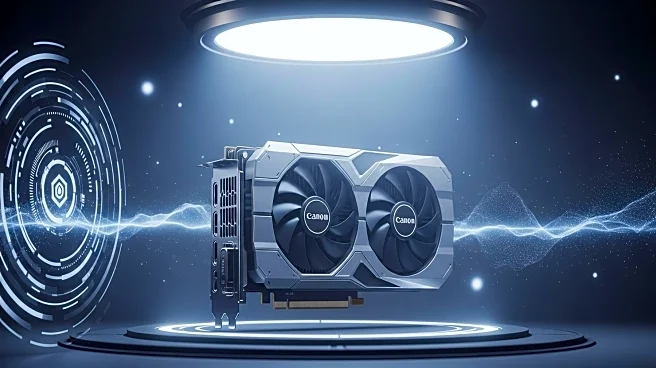What is the story about?
What's Happening?
China has accused Nvidia, a leading US tech company, of violating anti-monopoly laws, significantly escalating trade tensions between the two nations. The announcement follows a preliminary antitrust probe by Chinese regulators, coinciding with ongoing trade talks between US and Chinese diplomats in Madrid. The US Commerce Department recently placed two Chinese chipmakers on the Entity List, restricting their access to US semiconductor technology. This move is part of a broader tit-for-tat trade conflict, with the US largely banning exports of key AI technology to China, while China delays promises to supply rare-earth minerals. Nvidia's CEO, Jensen Huang, has been actively engaging with the Trump administration to negotiate deals that allow the export of certain AI chips to China, despite security concerns raised by Chinese state media.
Why It's Important?
The accusation against Nvidia by China could have significant implications for US-China trade relations, particularly in the technology sector. Nvidia is a major player in the AI chip market, and any restrictions on its operations could impact the US's technological edge and economic interests. The ongoing trade tensions highlight the strategic importance of AI technology for national security, with both countries vying for dominance. The situation also underscores the complexities of international trade negotiations, where economic and security interests often collide. The outcome of these tensions could affect global supply chains and the availability of critical technology components.
What's Next?
China's decision to continue investigating Nvidia suggests further scrutiny and potential regulatory actions. The outcome of these investigations could influence future trade negotiations and impact Nvidia's business operations in China. The Trump administration's recent deal with Nvidia and AMD to export certain AI chips to China may face challenges if China imposes additional restrictions. Stakeholders, including tech companies and government officials, will likely monitor developments closely, as they could affect strategic partnerships and market access. The broader implications for US-China relations and global technology markets remain uncertain.
















